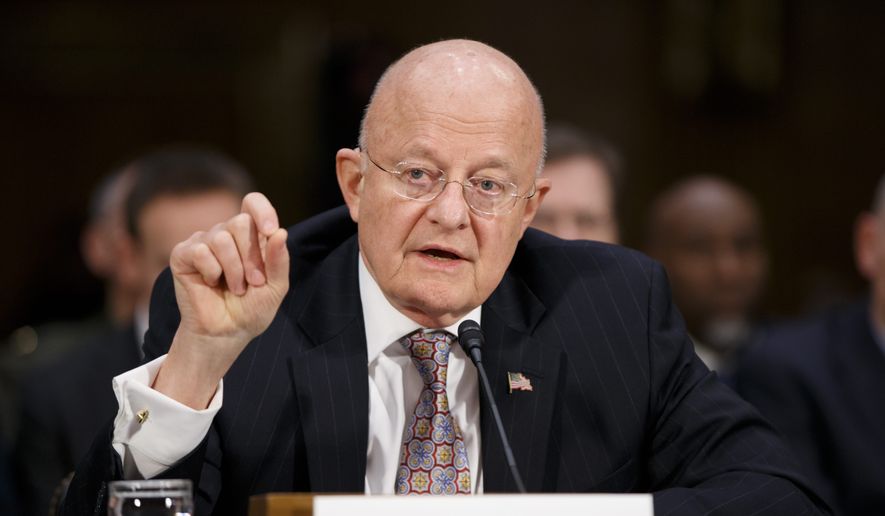America’s top spy said Wednesday that U.S. intelligence officials have a “huge concern” about Islamic State’s ability to infiltrate waves of Syrian war refugees flowing into Europe and potentially the United States as pressure mounts on Western nations to take in a growing number of people fleeing the conflict in the heart of the Middle East.
“As they descend on Europe, one of the obvious issues that we worry about, and in turn as we bring refugees into this country, is exactly what’s their background?” Director of National Intelligence James R. Clapper said. “We don’t obviously put it past the likes of ISIL to infiltrate operatives among these refugees.”
“That is a huge concern of ours,” Mr. Clapper said during a rare and unusually informal public appearance at an annual U.S. intelligence community conference that kicked off Wednesday morning in Washington.
While he added that U.S. authorities, who have so far allowed in fewer than 2,000 of Syria’s some 4 million refugees, have a “pretty aggressive” system for screening the backgrounds of those seeking entry into the United States, Mr. Clapper said he’s not so confident about the capabilities of some European nations.
He made the remarks during a wide ranging question-and-answer session that former ambassador and U.S. intelligence chief John Negroponte moderated at Wednesday’s conference sponsored by the Intelligence and National Security Alliance and the Armed Forces Electronics Communication Association.
Iran deal
Mr. Clapper said he stands behind the Obama administration’s nuclear deal with Iran despite biting criticism from Republicans that it lacks safeguards for verifying that Iranian officials won’t cheat and develop nuclear weapons right under the noses of the International Atomic Energy Agency (IAEA) — the U.N. nuclear watchdog tasked with implementing the accord.
Mr. Clapper said he is “pretty confident” that U.S. intelligence officials will be able to verify “from our own sources” the accuracy of future IAEA assessment’s of whether or not Iran is complying with the terms of the nuclear accord.
“We are fielding some independent capabilities that will enable us, I think, to have good insight into [Iran’s] nuclear industrial enterprise,” he said.
Mr. Clapper said he could not publicly comment on what such independent capabilities entail. At the same time, he expressed confidence that the nuclear accord has put in place a protocol by which the IAEA will have “very intrusive, unprecedented access and ability to absolve and monitor what the Iranians are doing.”
Overall, he added, he supports the nuclear deal reached this summer, because, “if given a choice between a state sponsor of terrorism with nuclear capability or a state sponsor of terrorism without, I’d probably pick the latter.”
• Guy Taylor can be reached at gtaylor@washingtontimes.com.




Please read our comment policy before commenting.